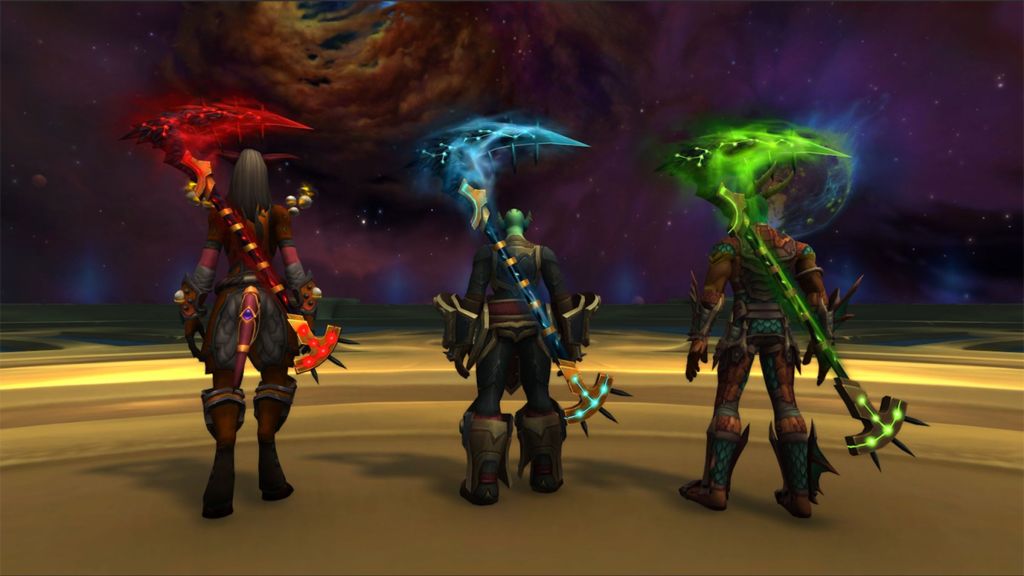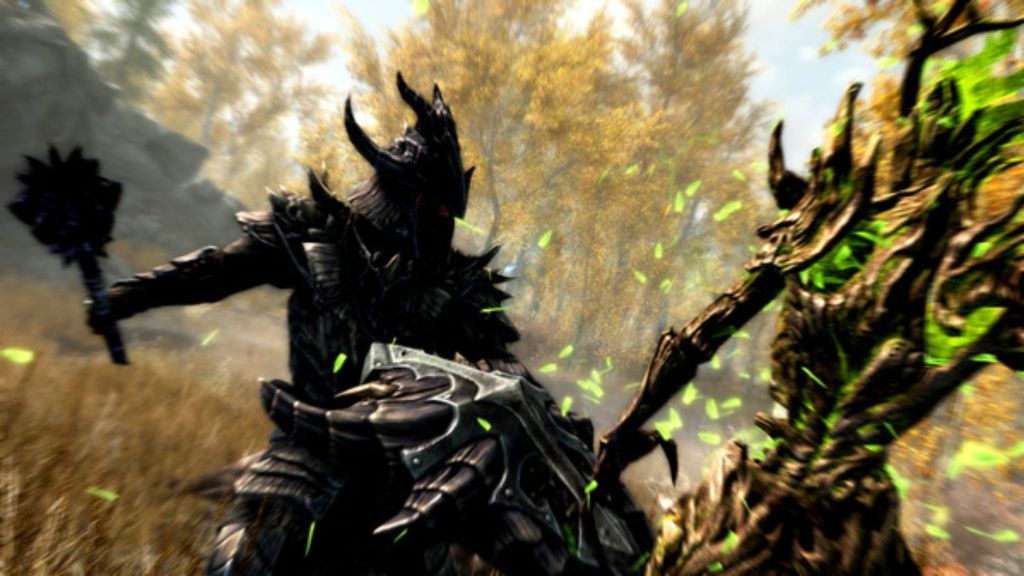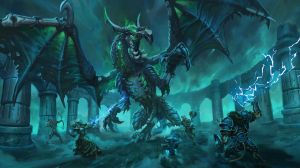There was a time when certain game studios felt like untouchable giants, creating games that were (and still are) legendary for their time. Their names were synonymous with quality and their games shaped the industry in lasting ways. Players always expected greatness from them, and for a while, they delivered it, building trust that was rarely questioned. The very concept of failure was never even a consideration for most fans, who looked forward to the next game from these studios.
Videos by ComicBook.com
Over the last decade, however, those same studios have struggled to meet their own legacies. They are still active, still releasing games, and in some cases still successful financially, but the spark that once made them extraordinary in the eyes of the fan has dimmed greatly. Instead of leading the charge for the industry, these companies now feel like pale echoes of their former selves. Most of the people who made them great are gone, and now they survive either by chasing trends or by relying upon the reputation of their namesakes.
5. Blizzard Entertainment

Everyone knows Blizzard Entertainment. Once hailed as one of the most respected names in gaming, Blizzard has since seen a decline from its former powerhouse status. The studio made its mark with classics like Warcraft III, StarCraft, and Diablo II, shaping entire genres in the process. While Blizzard remains highly profitable, largely thanks to its flagship MMORPG World of Warcraft, which set a new standard for the genre, it no longer commands the same aura of polish and innovation that once made every update headline news.
In the last decade, their reputation has shifted dramatically. Diablo III’s infamous launch with its real money auction house left a bitter taste, the troubled rollout of Warcraft III: Reforged was met with outrage, and Overwatch 2 has been criticized to oblivion due to countless problems and numerous broken promises. All of these things have greatly impacted Blizzard’s reputation, and the lingering effects still haunt the name, years later. Blizzard now feels more focused on squeezing long-term profits through live-service models, like Diablo Immortal, than delivering groundbreaking experiences.
That said, Blizzard is still a household name, but no longer the company that consistently delivers the magic expected from its legacy. Instead of excitement, new announcements and releases are often met with hesitation and skepticism, for good reason. For many, the studio has gone from innovator to follower, and that represents a steep fall from grace.
4. BioWare

In years long before today, BioWare was synonymous with deep storytelling and emotional role-playing. Their games of old are still heralded as legendary experiences. Baldur’s Gate and Knights of the Old Republic to Mass Effect and Dragon Age: Origins, their games were masterclasses in narrative design and championed as leaders in the genre. Choices mattered in these titles, and each new release seemed to push RPG storytelling forward in ways that no other studio could quite replicate. BioWare had captured lightning in a jar, but the usuals of corporate policy began to sink their teeth into the studio’s success, and the result is the zombified version we have today, kept alive only by its namesake.
BioWare’s reputation began to crack in the last decade. Mass Effect: Andromeda was plagued by technical problems, stiff animations, and lackluster writing, which all left a bad taste. Anthem, their big step into the live-service space, became one of the most infamous failed launches of the generation, and still carries that black mark today. Even Dragon Age: Inquisition, which was actually pretty good and won awards, left many fans divided and failed to reach the creative heights of its predecessors. To many, Dragon Age: Origins is still far superior, despite Inquisition not being a terrible game by any metric. Even so, it’s obvious that the promise of player-driven storytelling has been overshadowed by rushed projects and corporate pressure, and no good narrative can be told properly under such baggage.
As a brand, BioWare still carries significant weight in the space, but it no longer represents the gold standard of RPG design it was once known for. The studio’s decline has been a painful reminder of how even the most trusted names can lose their way. Hopes remain high for their upcoming titles, but the question is no longer whether they will deliver greatness, but if they can even come close to recapturing their old spark. A shame, really.
3. Bethesda Game Studios

Bethesda’s legacy is built on massive RPGs that defined generations of role-playing games in a different manner BioWare sought. Their games were designed to be massive sandbox RPG experiences that allowed you, the players, to do almost anything you wanted in a big open space. The result was some of the wacky, buggy, yet beloved video games ever created. Morrowind, Oblivion, and Skyrim each raised the bar within the Elder Scrolls franchise, creating immersive experiences filled with freedom, discovery, and endless replayability. For years, Bethesda was celebrated for its ambition and ability to capture the imagination of players with sprawling universes that begged to be explored.
In the years since, the shine has worn off. Fallout 4 streamlined many systems in ways that frustrated longtime fans, while Fallout 76 launched in a disastrous state, with the design decision to not include NPCs in the title on release, making it infamous. Both games became case studies in corporate missteps. Hopes were exceedingly high for Starfield, touted as Bethesda’s biggest project yet with the most promise and hype the studio has ever received, but the game landed as an underwhelming and outdated take on exploration. Rather than redefining the genre, it highlighted how far behind the studio had fallen compared to newer competitors. Many of the game’s systems were outdated, and so was its aging engine; an engine that Bethesda has refused to change despite fan outcry.
Bethesda remains a major player in the industry because, while its games are utilizing outdated design principles, the titles themselves are still without real competition. Its creative peak was more than a decade ago, and the excitement that once surrounded its games has been replaced by doubt. Many now wonder if the studio can ever replicate the sense of awe and wonder that once defined its name.
2. Ubisoft

Ubisoft was once known for creative risks and groundbreaking design. The early days of Assassin’s Creed defined a generation of open-world games, while Splinter Cell, For Honor, and Far Cry 3 showcased a studio willing to experiment across multiple genres. Their output felt ambitious and fresh, with every release contributing something new to the conversation about how games could evolve.
Today, Ubisoft is defined by the open world meme culture of its large titles. Their open-world formula has become bloated with checklists, map icons, and microtransactions that sap the sense of discovery and enjoyment the moment you lay eyes on it. Essentially, their games are solved the moment you open them, because Ubisoft never changes its open-world design principles. It has become what the studio is most known for. Assassin’s Creed has shifted into bloated yearly releases that blur together, while once-beloved franchises like Splinter Cell have been left dormant for over a decade. Even their newer projects, like Watch Dogs, often feel like cautious rehashes of existing ideas rather than bold steps forward.
Ubisoft is still a powerhouse publisher, but creatively, its peak feels far in the past. The studio’s current design philosophy reflects a reliance on safe, formula-driven products that rarely spark excitement. Where they once led the charge with innovation, they now struggle to keep pace with fresher, bolder studios.
1. Bungie

Bungie’s rise was tied to one of the most iconic franchises in gaming history, setting the stage for the Xbox console to become the household name that it is today. The Halo series, particularly Halo: Combat Evolved, Halo 2, and Halo 3, defined the console shooter genre and built a passionate community that shaped the way players thought about online play. Bungie was a name associated with innovation and polish in the past.
The transition to Destiny marked a new chapter, but one that never matched the highs of their Halo era. While Destiny has had moments of brilliance, it has also been bogged down by grind-heavy systems, uneven storytelling, and a live-service model that left many feeling exhausted. Destiny 2 amplified these problems even more, as Bungie doubled down on just about everything everyone hates about the live-service model. Expansions have sometimes delivered flashes of greatness, but the game has also suffered from significant content droughts and pure mismanagement, along with a seeming lack of vision, as evidenced by some of the game’s very weak narratives.
Bungie remains relevant in the industry, but the studio that once revolutionized console shooters now feels locked into maintaining a service model. The studio’s most recent venture, Marathon, has been very poorly received overall due to numerous problems, with quality being one of the biggest. All of this is to say: the glory days of Halo feel distant, and for many, the hope that Bungie will ever reach those heights again has all but faded.
What do you think? Leave a comment below and join the conversation now in the ComicBook Forum!









